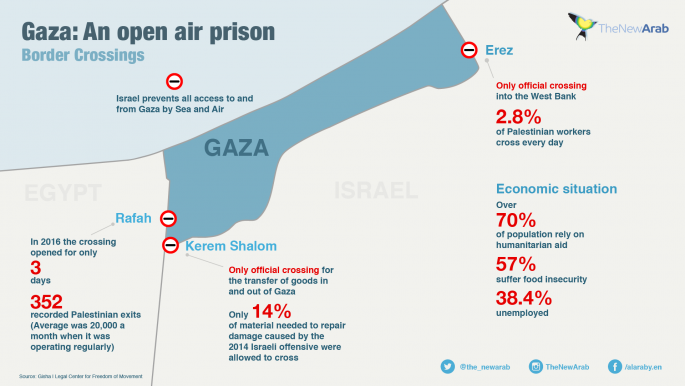Turkey compromises on Gaza blockade, makes up with Israel
Turkey and Israel have agreed a deal to normalise their troubled relations, six years after Israel attacked a Turkish boat bound for Gaza as part of an aid flotilla in international waters, killing Turkish citizens.
Representatives of the two countries negotiated the deal in Rome where Israeli Prime Minister Binyamin Netanyahu also met with US Secretary of State John Kerry.
The agreement which aims to end years of hostility is due to be announced on Monday morning, a Turkish official said.
The Turkish official confirmed that "the prime minister will talk about the contents of the Turkey-Israel agreement at tomorrow's press conference."
Previously tight relations between Israel and key NATO member Turkey were significantly downgraded after Israeli commandos staged a botched pre-dawn raid on the six-ship Freedom Flotilla in May 2010 as it tried to run the Israeli blockade on Gaza.
Nine activists on board the Turkish-owned Mavi Marmara ferry were killed, with a tenth later dying of his wounds, sparking a bitter diplomatic crisis.
Two of Turkey's key conditions for normalisation - an apology and compensation - have largely been met, leaving its third demand - that Israel lift its blockade on the Hamas-run Gaza Strip - the main obstacle.
Turkey has reportedly dropped this condition, accepting a watered-down version of what was once a stern proposal.
 |
"Israel's agreement to transfer 21 million shekels to the Turks constitutes a clear admission of guilt" - Hanin Zoabi |  |
Analysts believe Turkey relented as it felt it needed to win back old allies following the collapse of its relations with countries like Russia and Egypt, the fallout of regional conflicts in Syria and Iraq as well as a resurgence of Kurdish unrest within its borders.
Turkey's economy has been hard hit as a result, as well as its gas supplies from Russia, which in part has forced Turkey to seek new sources including Israel.
Under the terms of the deal, Israel will allow the completion of a much-needed hospital in Gaza, as well as the construction of a new power station and a sea water desalination plant for drinking water.
Reacting to this, Palestinian member of the Israeli Knesset, Hanin Zoabi condemned the agreement, describing it as a clear "admission of murder" by Israel.
"Israel's agreement to transfer 21 million shekels to the Turks constitutes a clear admission of guilt," she said.
"Even if Israel does not acknowledge it, it is a confession to the murder of nine people, wounding of dozens, kidnapping and piracy in international waters and false persecution," she maintained, referring to the Mavi Marmara flotilla incident she was involved in.
Israeli Prime Minister Binyamin Netanyahu confirmed the deal was made during a meeting with US Secretary of State John Kerry in Rome, however fell short of specifying details.
He said the deal "has immense implications for the Israeli economy, and I use that word advisedly".
"And I mean positive, immense implications," he added.
Analysts have said Turkey began pursuing a more conciliatory foreign policy following the departure of former Prime Minister Ahmet Davutoglu, who spearheaded an aggressive and interventionist strategy.
His successor, Binali Yildirim, last week said he wanted no permanent tensions with Black Sea and Mediterranean neighbours - after serious ruptures, not just with Israel but also with Egypt and Russia.





 Follow the Middle East's top stories in English at The New Arab on Google News
Follow the Middle East's top stories in English at The New Arab on Google News
![Netanyahu furiously denounced the ICC [Getty]](/sites/default/files/styles/image_330x185/public/2024-11/GettyImages-2169352575.jpg?h=199d8c1f&itok=-vRiruf5)
![Both Hamas and the Palestinian Authority welcomed the ICC arrest warrants [Getty]](/sites/default/files/styles/image_330x185/public/2024-11/GettyImages-2178351173.jpg?h=199d8c1f&itok=TV858iVg)
